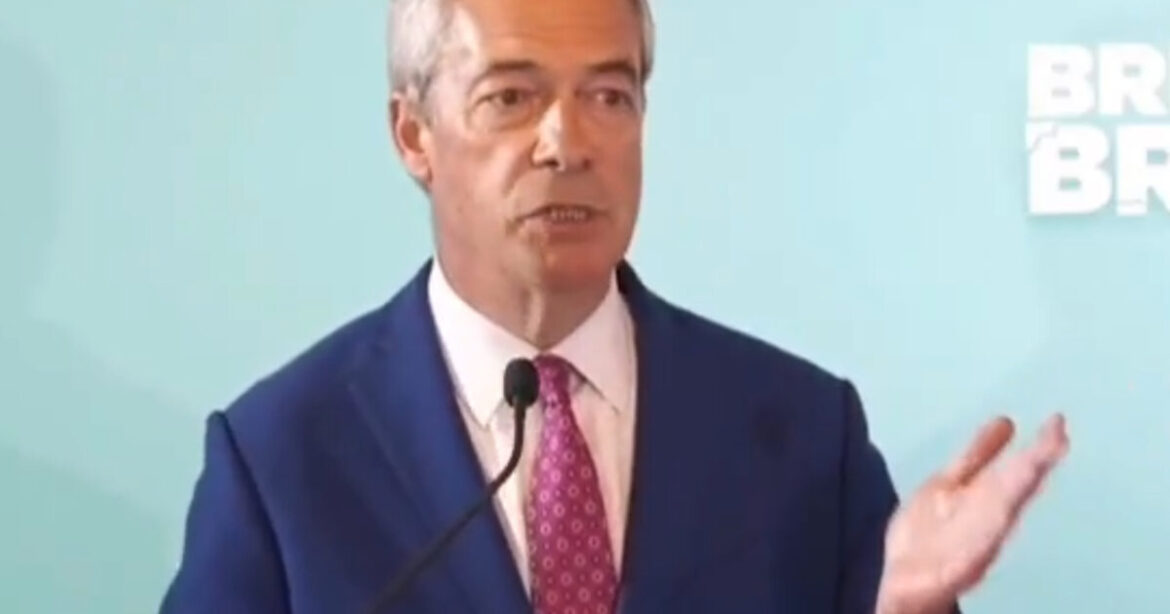Nigel Farage Calls for ‘Minister for Deportations’ in Fiery Dover Speech
In a bold and uncompromising speech delivered on Wednesday from the symbolic coastal town of Dover, Reform UK leader Nigel Farage unveiled one of his most hardline proposals yet: the creation of a “Minister for Deportations” tasked solely with expelling illegal immigrants from the United Kingdom.
Farage’s announcement, echoing elements of President Donald Trump’s mass deportation policy in the United States, signaled an aggressive shift in Reform UK’s already tough stance on immigration.
A Ministry With One Mission: “Get Them Out”
“We will appoint – we will demand this Government does the same – that there is a Minister for Deportations,” Farage told supporters.
“It will be part of the Home Office, but it will be a separate department within it.”
Farage emphasized that this is not some radical concept, but rather a return to common sense.
“It’s what most countries in the world do,” he said. “You want to go and live there, you want to settle there? You have to meet a set of criteria. That country chooses — are you the right person, or are you not?”
The move would ensure focused government accountability on one of the most explosive political issues of the past decade — border security and immigration control.
A Nation at a Breaking Point
Britain’s immigration crisis has reached a boiling point. Official figures show that legal immigration remains at record levels, while tens of thousands of illegal migrants have crossed the English Channel in small boats — a national embarrassment for a country that once ruled the seas.
Despite repeated promises from Labour and Conservative governments to control the borders, the UK’s population continues to swell, especially from Pakistan, Bangladesh, North Africa, and the Middle East. Social cohesion, housing, public safety, and national identity have all become flashpoints.
As Farage noted, frustration among the native British population is palpable.
Political Momentum for Reform UK
While Britain’s First-Past-the-Post system has made it difficult for insurgent parties to gain traction in Parliament — with Reform UK only winning five MPs in the last general election — recent polling indicates that the party is rapidly gaining ground, with some surveys placing them neck-and-neck or ahead of the Conservatives.
However, the path to power remains narrow until the next general election, likely four years away, after Labour’s July 2024 landslide. Still, Farage’s message appears to be resonating far beyond the populist right.
“We have a moral obligation to the British people,” he declared. “They’ve had enough of broken promises, enough of lies, enough of being told their own communities and culture must take a back seat to open-border utopianism.”
What’s Next?
Farage promised that within weeks, he will release a comprehensive deportation plan, laying out how his government would locate, detain, and expel hundreds of thousands of illegal migrants currently residing in the UK.
Though critics on the left are already branding the proposal as “xenophobic” and “unrealistic,” the policy is expected to further energize Reform UK’s base and apply pressure to both Labour and the Tories to get serious about border enforcement.
Whether Reform UK can capitalize on the growing disillusionment with establishment parties remains to be seen—but Farage’s call for a Minister of Deportations has drawn a line in the sand, both literally and politically, in Dover.

